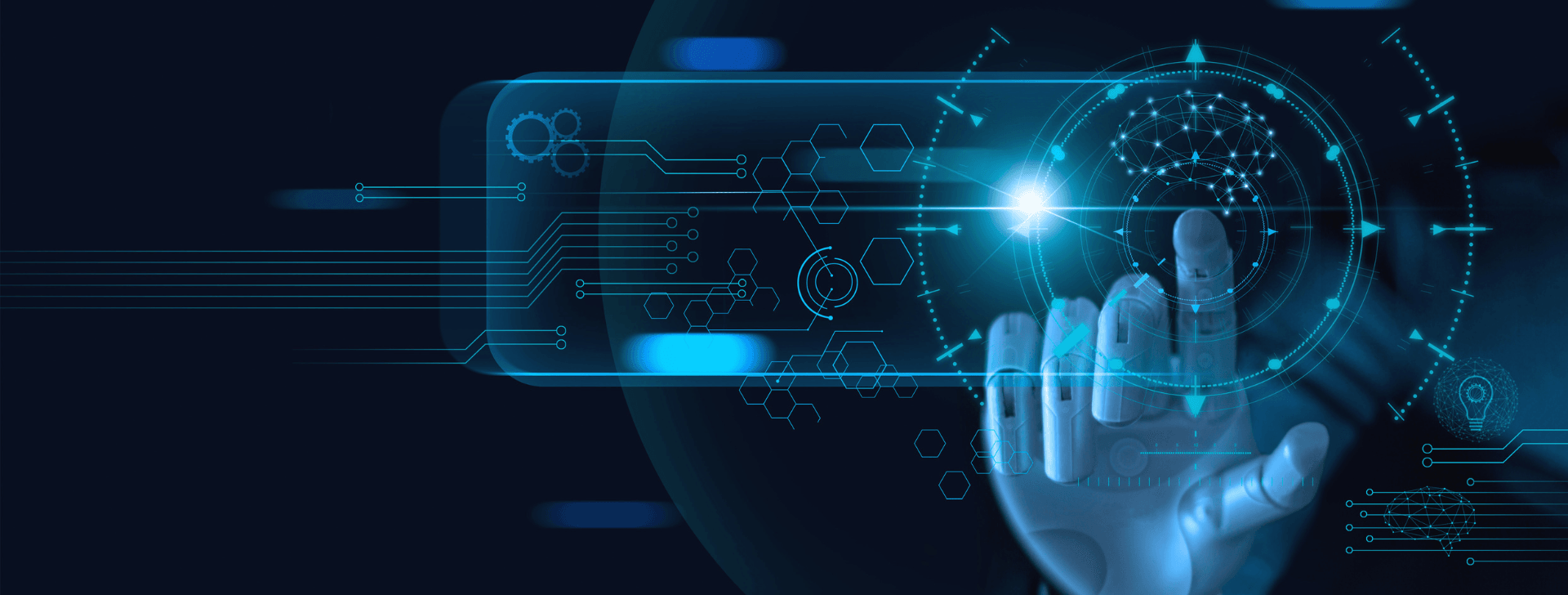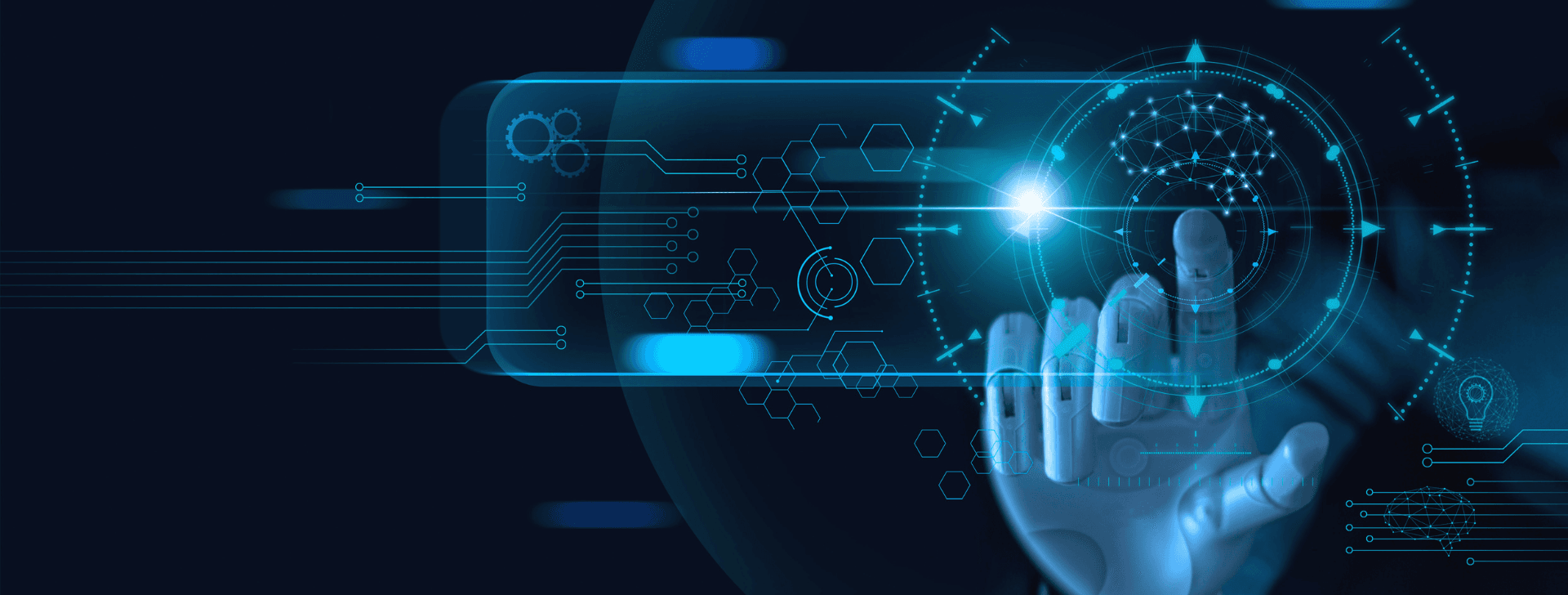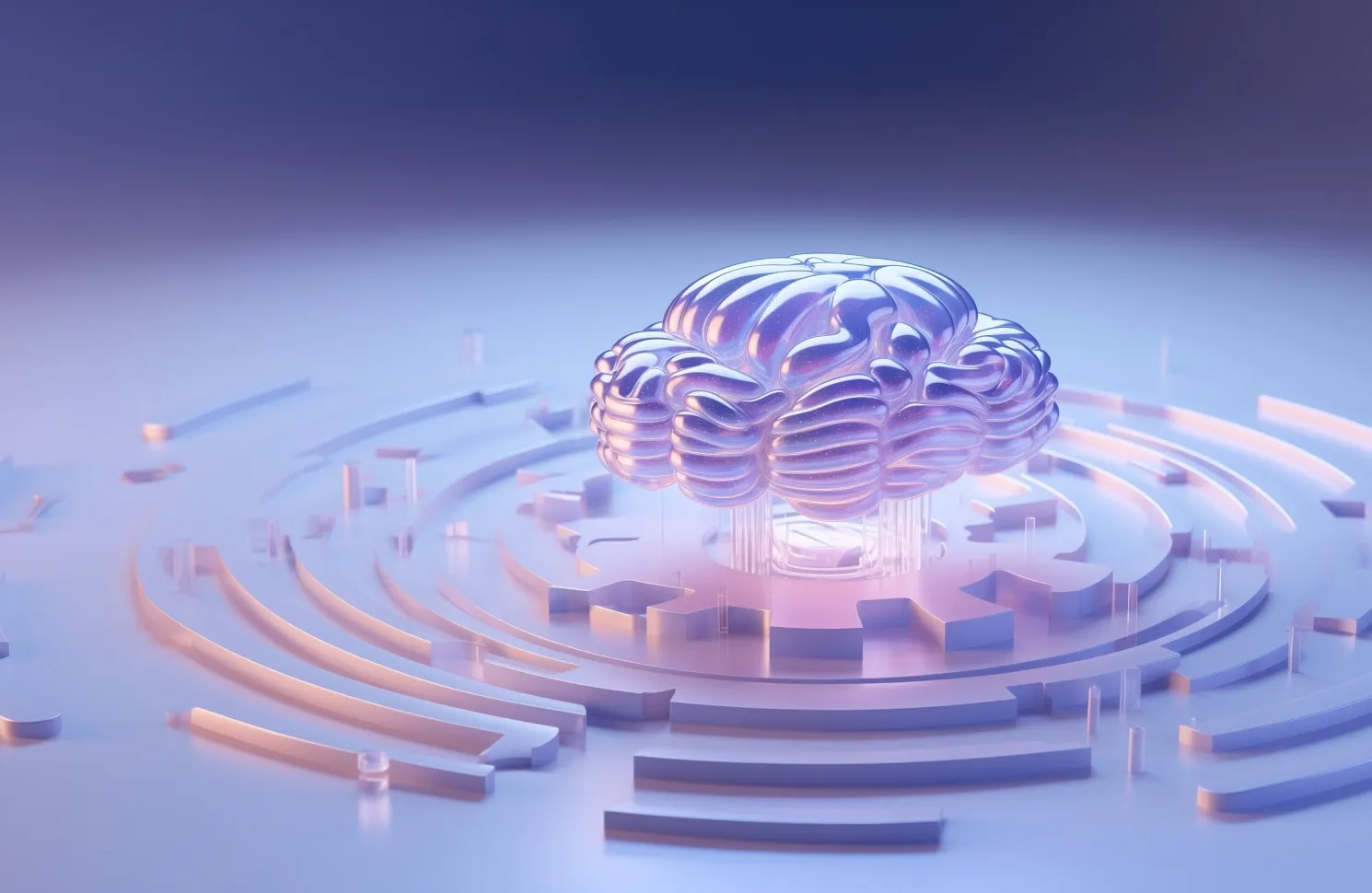

OpenAI's journey: From startup to AI powerhouse
SEP. 25, 2024
8 Min Read
Artificial intelligence (AI) has become one of the most transformative technologies of our era, reshaping industries and driving innovation across sectors.
At the forefront of this revolution is OpenAI, a research organization and tech company that has continually pushed the boundaries of what AI can achieve. OpenAI has not only developed some of the most advanced AI models but has also influenced the global conversation around ethical AI development and responsible use of AI technologies. This article takes an in-depth look at OpenAI's remarkable journey from a bold startup to an AI powerhouse, exploring its ownership structure, history, key milestones, innovations, partnerships, and the challenges it faces as it continues to shape the future of artificial intelligence.
What is OpenAI?
OpenAI is a leading research organization and technology company with the mission to develop artificial general intelligence (AGI) that can benefit all of humanity. Since its founding in 2015, OpenAI has focused on advancing digital intelligence in ways that promote positive, ethical outcomes. It is known for creating models that can understand and generate human-like text, develop sophisticated decision-making systems, and even produce art and code. OpenAI strives to ensure that the development of AGI is safe and that the benefits are distributed broadly, avoiding the concentration of power that could arise from the unchecked development of such a powerful technology.
Key aspects of OpenAI’s mission include:
- Advancing AGI: Pushing the boundaries of what artificial intelligence can do, with the goal of creating systems that can perform tasks on par with or surpass human intelligence.
- Ethical AI practices: Prioritizing the safe deployment of AI technologies to mitigate risks associated with misuse, bias, and societal impact.
- Collaboration: Encouraging global research collaborations and fostering a community that values transparency and shared knowledge.
- Commercial applications: While maintaining ethical standards, OpenAI also works to commercialize AI in a way that drives real-world solutions, benefiting industries from healthcare to finance.
Ultimately, OpenAI is not just about pushing the boundaries of technology but about ensuring that AI's transformative power is used to improve lives across the globe. Its vision of ethical, safe AI development makes it a critical player in the future of artificial intelligence.
The Evolution of OpenAI: A Journey Through Milestones
OpenAI’s history reflects an ambitious vision to push the boundaries of artificial intelligence while addressing its ethical implications. Founded in 2015 by Elon Musk, Sam Altman, and other key figures, OpenAI began with the goal of advancing AI in ways that benefit humanity. Over the years, it has adapted to the evolving AI landscape, taking strategic steps to maintain its commitment to ethical AI development.
In 2016, OpenAI launched OpenAI Gym and Universe, platforms that allowed researchers worldwide to develop and test reinforcement learning algorithms, cementing OpenAI’s place in open-source AI research. Then in 2018, the partial release of GPT-2 marked a critical moment when OpenAI chose to withhold certain AI capabilities out of concern for misuse, illustrating the increasing tension between transparency and safety.

A pivotal shift came in 2019, when OpenAI transitioned to a capped-profit model, allowing it to attract investments while maintaining ethical standards. The following year, the release of GPT-3 demonstrated the immense potential of large language models, further elevating OpenAI’s profile.
OpenAI’s advancements didn’t stop there. In 2021, the introduction of Codex and DALL-E expanded AI’s applications into creative and technical fields. By 2023, GPT-4 set new standards in AI performance, reaffirming OpenAI’s role as a leader in natural language processing.
Through these milestones, OpenAI has shown its ability to innovate while remaining responsive to the ethical challenges that come with developing transformative AI technologies.
Revolutionary products and innovations
OpenAI has been responsible for some of the most groundbreaking AI innovations in recent years, with products that have revolutionized industries ranging from technology and finance to healthcare and the arts. These products have demonstrated the transformative power of AI, proving that machine learning models can enhance creativity, efficiency, and decision-making across various domains.
The most revolutionary products from OpenAI include:
- GPT series (GPT-3, GPT-4): These language models have redefined the field of natural language processing, allowing machines to generate coherent, contextually relevant text. GPT models are now used for everything from automating customer service to creating content at scale.
- Codex: OpenAI’s AI-powered coding assistant, Codex, powers GitHub Copilot, enabling developers to write code more efficiently by automating repetitive coding tasks and providing intelligent code suggestions.
- DALL-E: This innovative AI model creates highly detailed images from textual descriptions, making it a game-changer for industries like design, marketing, and advertising.
- OpenAI API: By offering API access to its models, OpenAI has democratized AI, enabling businesses and developers to integrate advanced AI tools into their applications, making AI solutions accessible to a broader audience.
These products have not only showcased the practical applications of AI but have also sparked conversations around the ethical implications of such powerful technologies. OpenAI’s innovations continue to shape the future of how AI is used in both business and everyday life, cementing its role as a leader in the AI revolution.
"OpenAI strives to ensure that the development of AGI is safe and that the benefits are distributed broadly, avoiding the concentration of power."
The Microsoft partnership: A pivotal collaboration
The partnership between OpenAI and Microsoft is one of the most significant collaborations in the AI space. Announced in 2019, this partnership provided OpenAI with the financial resources and infrastructure necessary to scale its research and product development. Microsoft’s investment, initially pegged at $1 billion, has since grown, allowing OpenAI to leverage Microsoft’s Azure cloud platform for training and deploying its massive AI models.
Key events in the partnership include:
- 2019 – Initial investment: Microsoft invests $1 billion into OpenAI to support the development of AGI and to fund the computational resources needed for training advanced models.
- 2020 – Azure as the preferred cloud platform: OpenAI selects Microsoft Azure as its exclusive cloud provider, enabling it to harness Azure’s massive computing infrastructure to train models like GPT-3.
- 2021 – GPT-3 integration into Microsoft products: Microsoft begins integrating OpenAI’s GPT-3 into its products, including Microsoft 365, to enhance productivity tools with AI-driven capabilities.
- 2023 – Expanded collaboration: Microsoft’s continued investments help OpenAI scale further, resulting in advanced products like GPT-4.
The Microsoft partnership has not only provided OpenAI with critical resources but has also allowed Microsoft to leverage OpenAI’s models to improve its own product offerings, creating a mutually beneficial relationship that continues to drive AI innovation.


Criticisms and controversies
As a pioneering force in AI, OpenAI has inevitably faced its share of criticisms and controversies. While it has been lauded for its technological advancements, certain decisions and actions have sparked debates about transparency, ethics, and the commercialization of AI.
Key criticisms of OpenAI include:
- Lack of transparency: Initially celebrated for its commitment to open research, OpenAI has been criticized for gradually becoming more secretive, particularly after withholding the full version of GPT-2. This shift raised concerns about the organization’s commitment to its original ethos of openness.
- Ethical concerns around AI misuse: The release of powerful language models like GPT-3 and GPT-4 has sparked fears that these technologies could be used to spread misinformation, create deepfakes, or be exploited for other malicious purposes.
- Commercialization shift: OpenAI’s transition from a non-profit to a capped-profit model has led some to question whether the organization’s profit motives could eventually overshadow its commitment to ethical AI development.
- Monopoly concerns: With Microsoft’s massive investments and exclusive access to OpenAI models, critics worry that the partnership could lead to a consolidation of power, contradicting OpenAI’s mission to democratize AI.
Despite these criticisms, OpenAI remains a key player in the AI industry, continually working to address the challenges of transparency and ethical deployment. The organization’s journey highlights the inherent tension between innovation and regulation, a balance that OpenAI must navigate as it continues to shape the future of artificial intelligence.
OpenAI's impact on the AI landscape
OpenAI’s impact on the AI landscape has been profound, shaping not only the technology but also the broader conversations around AI ethics and governance. The organization’s breakthroughs in natural language processing, reinforcement learning, and generative models have led to advancements across industries, from healthcare to finance to entertainment.
OpenAI’s contributions have influenced the way businesses approach AI integration, driving automation, improving efficiency, and unlocking new possibilities. Beyond commercial applications, OpenAI has played a key role in advancing the ethical development of AI, pushing for greater accountability and transparency in AI deployment.
"The organization’s growth trajectory serves as a reminder that pushing the limits of technology requires a careful balance of innovation, responsibility, and long-term vision."
The future of OpenAI: Challenges and opportunities
As OpenAI looks to the future, it faces a range of challenges and opportunities that will shape its trajectory. On one hand, the development of AGI remains its ultimate goal, a task fraught with both technical and ethical challenges. On the other hand, OpenAI must navigate the increasing competition in the AI space, where more players are emerging with their own advanced models.
The key challenges OpenAI faces include:
- AGI development: Moving from narrow AI to AGI will require solving complex problems, such as ensuring safety, controllability, and alignment with human values.
- Ethical deployment of AI: As AI models become more powerful, OpenAI must find ways to mitigate risks and ensure that its technologies are used for the benefit of society.
- Competition: With more companies investing in AI, OpenAI must continue to innovate and maintain its leadership position in the industry.
However, these challenges also present significant opportunities for OpenAI to lead in shaping the future of AI, both technologically and ethically. OpenAI’s success will depend on its ability to balance innovation with responsibility, ensuring that its technologies benefit all of humanity.

OpenAI's legacy and ongoing journey
OpenAI's journey from a small research lab to a global AI leader is a testament to its vision, ambition, and adaptability. As it continues to break new ground, OpenAI’s legacy will be defined not only by its technological contributions but also by how it navigates the ethical challenges of AI development. For businesses seeking to integrate AI into their operations, partnering with companies that understand these challenges is critical. Lumenalta stands ready to guide businesses through their own AI journeys, ensuring that they harness the power of AI responsibly for long-term growth and success.
Table of contents
- What is OpenAI?
- The Evolution of OpenAI: A Journey Through Milestones
- Revolutionary products and innovations
- The Microsoft partnership: A pivotal collaboration
- Criticisms and controversies
- OpenAI's impact on the AI landscape
- The future of OpenAI: Challenges and opportunities
- OpenAI's legacy and ongoing journey
- Common questions about openAI
Common questions about OpenAI
What is OpenAI?
Who owns OpenAI?
What are some key milestones in OpenAI’s history?
How has OpenAI contributed to AI innovations?
What controversies has OpenAI faced?
Want to learn how artificial intelligence can bring more transparency and trust to your operations?



